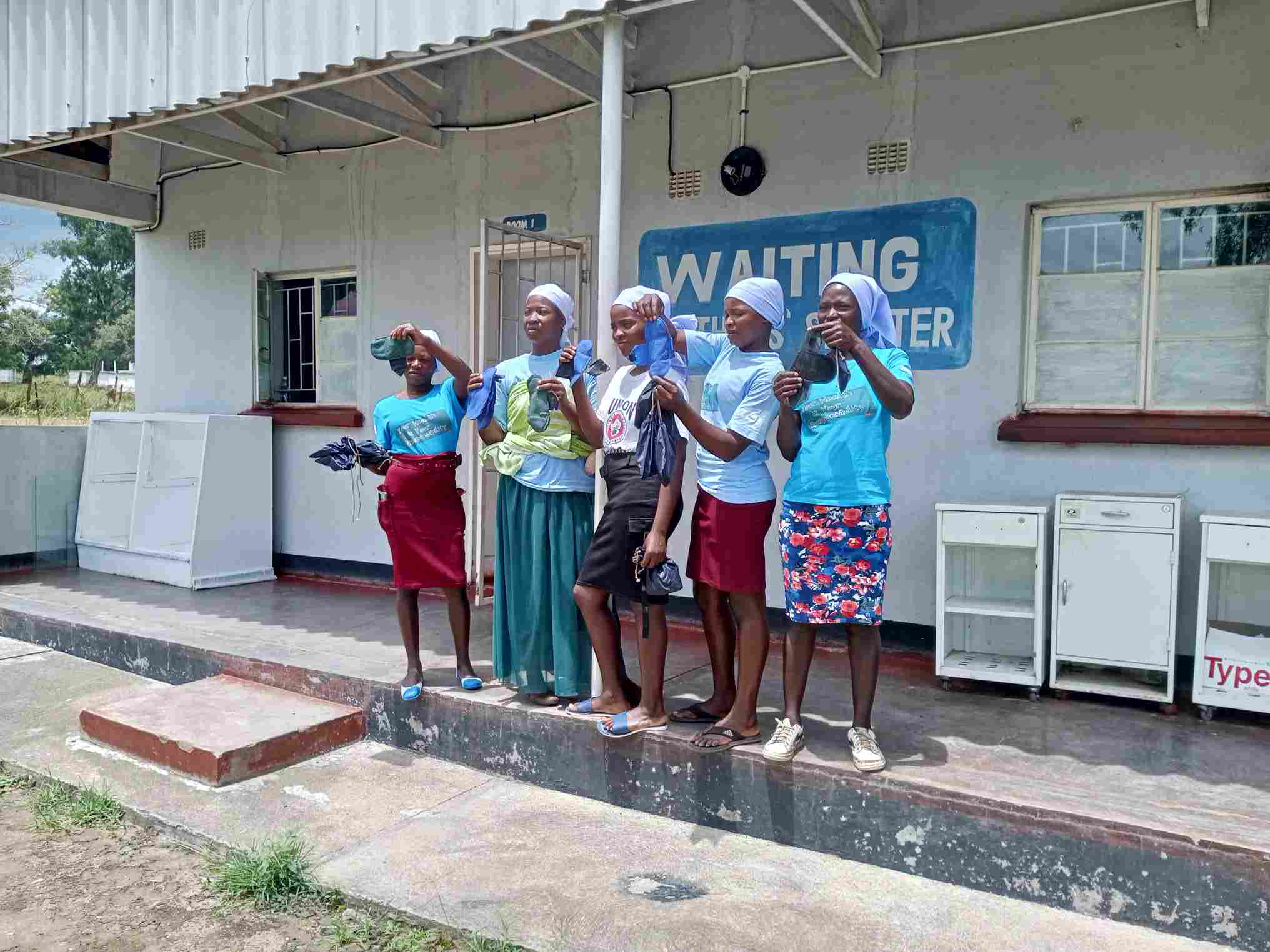|
Getting your Trinity Audio player ready…
|
The National AIDS Council (NAC) and other stakeholders are in partnership with Apostolic Women Empowerment Trust (AWET) in programming meant to achieve positive health outcomes including reducing HIV in Shurugwi District in the Midlands Province.
Addressing journalists on a media tour organised by the National AIDS Council at Chironde Rural Health Centre on Thursday last week, Peter Muzarakuza, the NAC District AIDS Coordinator for Shurugwi said they are engaged in programming meant to reduce HIV by working with the Apostolic Women Empowerment Trust (AWET).
“In this mining area of Shurugwi, there is a high risk of women in the apostolic sects engaging in unprotected sex because of their religious beliefs that family planning is against reproduction. A majority of girls and young women are married off early and are often faced with violence. Through working with AWET, the girls and young women are embracing the SRHR programs that we are providing,” Muzarakuza told Spiked Online Media.
Ntobizodwa Revesai, the AWET Program Manager said her organisation is working in Ward 18 in Shurugwi in partnership with NAC and other partners.
“Our thrust is to create demand for family planning, institutional delivery, and conducting WASH programs to encourage proper use of ablution facilities. Initially, there was a low uptake of institutional delivery among the apostolic sects. We roped in behaviour change agents from the sect. We should address the stigma against apostolic members. As AWET, we speak the same language with girls and young women in the apostolic sect so our message on promoting health uptake is being embraced.
“We conduct behaviour change training focusing on basic facts about HIV, hygiene, and the menstrual cycle. A significant number of apostolic members are being tested for HIV, especially when they come for neonatal booking. The need for health education is high among the Marange Apostolic sect.
“Due to the cordial relationship that we created with the local council, community members come to clean up the health facility at Chironde Health Centre. Apostolic sect members are now making their own sanitary ware with funding from Unki Mine for personal use, for donation in the community, and resale at a lower price. We recently purchased 30 singer sewing machines and 2 over-locking machines for use by the girls and young women in manufacturing the sanitary pads,” Revesai said.
Moreblessing Jawo, a behaviour change facilitator, referred the mother of a 16-year-old child who fell pregnant to the Chironde Health Centre. The child subsequently registered for pregnancy at 8 months. Initially, she was hiding because she feared being arrested together with the rapist who is violent.
“We tell our clients that it is important to get tested. At church, we used to get anointed stones when we presented at health centres with symptoms like coughing. Getting tested establishes whether we have TB, HIV, or other sexually transmitted infections. We also encourage apostolic members to deliver babies at health facilities,” Jawo said.
AWET is also promoting water, sanitation, and health (WASH) in Shurugwi by building community-based toilets. In the past, there were no toilets at apostolic shrines.
It built 40 two-door Blair toilets at apostolic shrines. The organisation built the capacities of communities for building toilets. They started with demo toilets and provided demo buckets for washing hands. Other toilets are filling up so they are coming with a chemical to consume human waste.
“From a scoping exercise in Ward 18 and 19, we realized there were 567 homesteads that needed a double Blair ventilated pit latrine. We identified 40 shrines to construct female and male toilets. We have plans to construct 2 x 2 double latrine toilets at Chironde Clinic,” Revesai added.
